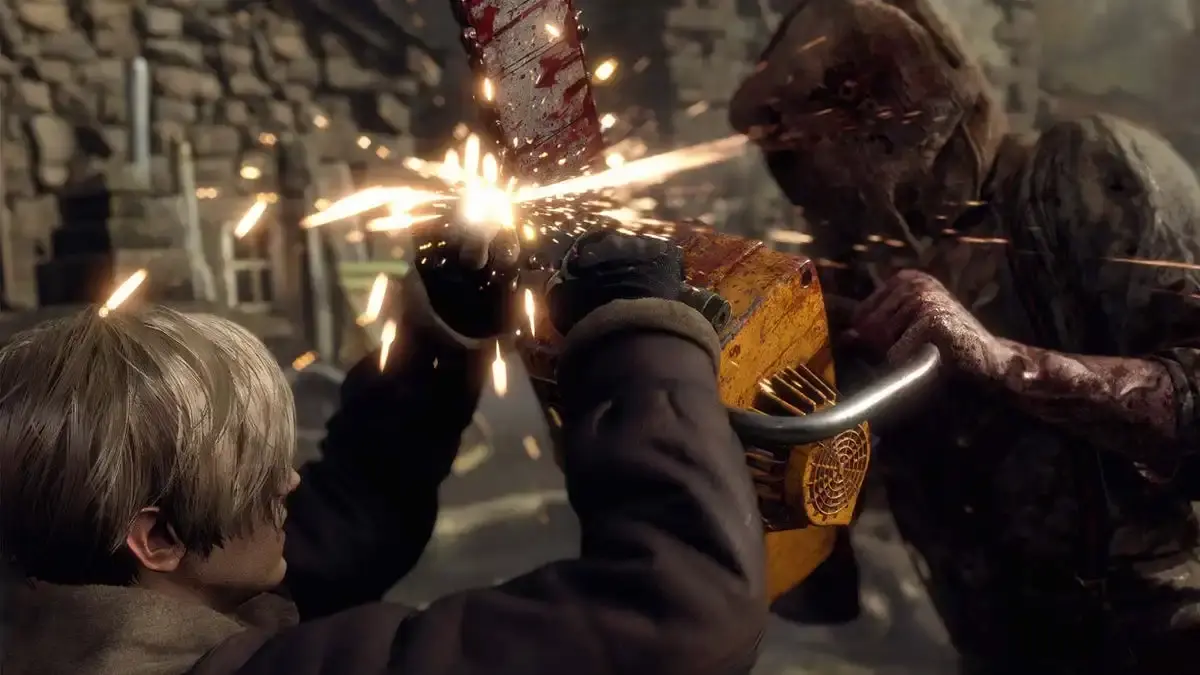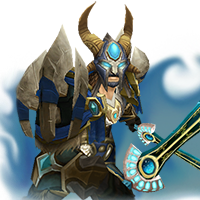lol. lmao.
It’s because these companies keep driving up production costs on their own. Their next game has to top their last. At what point do we say that graphics are good enough? Who needs these insane amount of details? Why does a game absolutely need to be 100+GB in size? Is Bloodborne not visually appealing enough? What about God of War (2018)?
Can we not find a “good enough” acceptable baseline and just work with that? This infinite growth is annoying as both a developer and a player. Like okay, ooooh, you can render each individual hair on someone’s head and they each have their own physics. Congratulations. How’s the story for the game? Ah, broken to the point of unplayable, but you pinky swear a patch is coming.
i want shorter games with worse graphics made by people who are paid more to work less and i’m not kidding
Welcome to the world of indie games, where the passion leads to experiences that stick in minds more than plenty of AAA games these days
This. I genuinely believe that in the near future indie games will be the sole torch-bearer for what I would call “traditional gaming”. Tighter, more focused experiences with no microtransactions or sanitized, inoffensive bloat. Games that are offline and don’t require any server handshake to function. And as the technology available to them advances, it will enable indie devs to be more and more ambitious with their vision.
It seems most artforms reach the point where the tools are available for the indie efforts to be as good as the corporate stuff.
Games seem to be rapidly reaching the tipping point, and then all the big players have to offer is throwing more money at projects with no guarantee they’ll be as enjoyable.
Fuck yeah. Give me passion projects made by people having a great time any day of the week.
was this quote originally by Jim Sterling or someone else?
thank
This infinite growth is annoying as both a developer and a player.
wait until you find out what the world economy is built on…
I still play Dishonored every year. Those are not realistic graphics in the slightest, but it still holds up pretty well. Why? Style. I would 100% take a “lower” graphics game with style than a 100GB game with exquisitely modeled sandwiches.
Stylistic games also age better than realistic games in my opinion. Look at other 2012 games like Mass Effect, Far Cry 3, and Borderlands. Mass Effect and Far Cry went more realistic, and I think they suffered a bit for it in the long run.
Not saying Dishonored didn’t age tho. It does have that 2012 feel, lol.
deleted by creator
Borderlands even looks great on potato settings, , graphics are nice and all but being able to tell what I’m looking at is more important and sometimes that said gets lost in the highest graphics range.
I hereby announce that I don’t have enough money, and I want more.
Well, if you think your game prices are too low, just raise them. The market will regulate this all on it’s own.
He knows that. Which is why he’s talking about it and not actually doing it.
He’s basically just whining about it to us.
They largely are. $70 is becoming the new price point for a new game.
First of all, consider how many hours of use you usually get out of such a AAA title, and you will see that it’s actually quite cheap entertainment. And second, there are good games (to waste countless hours on) that are way cheaper.
Hell, if you’re patient, various platforms give away good games for free all the time.
Yeah, and aside from less expensive indies I’ve bought fewer new games than ever this year.
Interestingly enough, if the games industry had kept the $60 price point that they fixed back ~2005 up with inflation, games would be costing around $95 today.
Unfortunately people’s wages haven’t kept up with inflation either, so that would just be a double whammy of making people who already struggling to pay for essentials pay more for entertainment as well, and at that point I’d think some people would just decide they can keep playing their old games.
Now do 1985.
Never mind, I’ll do it myself: NES games were $50, which today is about $185.
That’s only because people in the US and Asia overpaid for their games. We weren’t paying that for microcomputer games in Europe.
That puts collecting into context.
Buying almost any game new and holding onto them for decades would be a huge loss, net inflation. Even most “valuable” games would sell at a loss.
I’m already 50% of the time on my ship to the seven seas. Do they want me permanently at sea? Same goes with the media companies like Disney+, Netflix and Amazon. They push it any further, I’m pushing off to seas for good.
They *literally, figured out how to beat piracy. The unbeatable problem. And then they had to go and blow it with their greed.
Meh. Capcom games just became $0 for me, because I’ll swear an oath before you to pirate every one of their games, from here on out.
Inflation is a fact of life. Is a price that raises ever all it takes for you to decide to pirate? Did you do so when games increased from $50 to $60?
Poverty is also a fact of life. Not everyone can afford every price increase.
Capcom hasn’t even raised prices yet, and this person just swore an oath of piracy rather than waiting for a sale or something.
Maybe they’ve already been buying on sales.
I’m from a third world country. I still buy games as often as I can, but I also get that these price hikes are stretching people thin. A $70 game is like a third of our monthly minimum wage, it’s a huge chunk of money that people need to live, and most companies don’t bother to adjust it proportionally to our financial situation, even though there is no reason not to do so when it comes to digital media.
It sucks that skinflints in the west region hopping to save a few bob made companies wary of regional pricing in the digital age.
That’s just it. First off, I rarely am interested in Capcom games, think the last one I bought was in maybe 2016? (RE7). So this person you are responding to really is going off the handle over a nothing burger, I assure you.
But you’ve hit on an important point, that’s important to discuss. These price hikes are disproportionate to the growth of household earnings, and more importantly, digital media was supposed to drive costs down, and not up for the end consumer. We don’t actually own these games, we more or less lease them. There’s nothing physical anymore. Which is a problem. Not that I don’t like the ease of digital purchases, it’s the fact that at any moment I can be stripped of access to the product. Which makes it a lease or rental, not full ownership. Yet they keep wanting to drive the costs up up up, in light of that fact. It’s getting to be gross behaviour. The products are declining in quality, the costs keep going up, actual ownership of the end product comes into question, and the profits keep going to a smaller and smaller circle of people, some of whom are among the most vile of people alive today.
Enough is enough.
That person just said in another comment that they have the money. Before you even get to piracy, there’s also the option of purchasing and playing the games that you feel are priced fairly, because that incentivizes more of that to be made at those prices, and those games typically need your money more anyway. As for adjusting prices for different territories, I’m no expert on it, but I understand it might be related to people in stronger economies buying games from cheaper regions with something as simple as a VPN to get a game for a fraction of the price, which at any kind of scale means that that game needs to sell substantially more copies to break even.
Some companies still manage to offer regional prices. It’s more of a matter of poor implementation or even plain indifference. The latter especially when the platform offers that option but the publisher maintains the prices high.
Eh, I won’t speak for that person’s habits but for me piracy was not the last possible resort but rather the entry point that allowed me to develop enough interest that I do buy them today.
And when today the “free” options peddle gambling to children, I cannot take the moral argument seriously even for a second. I would much sooner have people pirate than develop gambling addictions, the publishers be damned.
Nope. I only pirate when media companies can’t stop gorging themselves on billions of dollars in profit and shovelling shares and dollar bills down their greedy little throats.
It’s not that I don’t have the money, I’ve just had enough. When you had one of two streaming services and a Spotify and good prices on steam and whatnot, that worked.
Today we have preorders that eclipse 100 dollars, my streaming service bills are more than the cable bills they were supposed to be replacing, and now it’s just more more more. We want more more more
🖕
Two streaming services is less competitive than the 5 or 6 major ones we have right now, you can choose them a la carte in a way you never could with cable, and even if you felt compelled to have all of them at the ad free tier, you’re paying less than cable and getting no commercials. Video game prices have lagged behind inflation, not even kept up with them, and the game you want will probably have a substantial sale 3 months after release anyway. It just seems like an incredibly thin premise to justify piracy.
I don’t need to justify piracy to you. You are the one that’s morally outraged here. Again, I have the money, it’s not a poverty thing. It’s a perception thing. When people act gross, I act gross in response. Plain and simple. You can try to defend these companies, some of which have larger profits than the GDP outputs of some countries, all you want. That’s your prerogative. When companies put greed before the goodwill of the customers, which this is by the way, then I act shitty in response. That’s my prerogative.
You were morally outraged enough to decide that this justifies piracy, but this is Capcom we’re talking about, not EA. From what I can see, they’re not making their money off of gambling mechanics like Ultimate Team. They’re talking about raising prices on products that are generally seen as quality and charging what they believe those products to be worth, even saying that this will allow them to raise staff salaries to retain talent. I don’t condone piracy, but I was asking you what line you believed they crossed when price increases are just inevitable for anything that costs money, and I personally don’t really see any scummy business practices attached to this. Beyond that, I’d also argue that you have a greater effect on the market when you just don’t pirate or play those games that offend you at all and instead direct your time and money to a game that could use it more. That means they make more of the latter and the former is less successful for doing something you didn’t like. Word of mouth of the games you played and the lack of word of mouth for the ones you didn’t has an effect on the market as well.
I agree you don’t have to justify it, but I also feel like you don’t need to glorify it either. I’m not morally opposed to it and jah knows I’ve don’t some piracy in my day, but people who have to make a big statement about it as you’ve done above invite the arguments from people who are morally opposed.
I didn’t decide to pirate when games went from $70 to $80 (CAD). I didn’t decide to when they went from $80 to $90. I decided to when, on top of that price, I also am encouraged via predatory tactics (such as matchmaking intentionally matching you up with players who have all of this nonsense so you can “see what you’re missing”) to buy a deluxe edition, season pass, monthly battlepass, “cosmetic only” microtransactions, second season pass, additional DLC not part of any season pass, and whatever other crap they want to nickel and dime their playerbase into buying. All just to actually get the full content of the game. Remember when games had the full game when you bought it? Maybe an expansion pack that had a substantial amount of content that was developed and released after the game was released?
That still happens. But instead of pirating the games that do that stuff, what if you bought and played the ones that don’t instead?
Why not both?
You’re free to do as you please, but if the game wasn’t worth it enough to pay for, pirating it still does them more of a solid than if you had bought and played something else. Let’s say the game is Starfield. Sure, they didn’t get your $90 if you pirated it, but if you’re contributing to discussions about it, it keeps people thinking about it, and especially if you have positive things to say about it, you end up encouraging other people to buy it, which means that their business strategy of selling the game at $90 CAD (or any other strategy you decided justified piracy) is still that much more effective, and they’ll do it again, because the game sold at that price. But maybe Broken Roads comes out for cheaper and you get your RPG fix there instead. They could use your dollar more, and each sale counts way more toward a future where that team gets to make another game after this one. If your word of mouth instead convinces someone to pick up Broken Roads (which you also hypothetically paid for), you’re contributing toward encouraging more games to come out at that price point. Both games are going to take up your finite time, so both your time and your money influence what survives in the market.
I say big budget games are too large in scope. Too much going on, too ambitious, too much emphasis on certain aspects that I feel developers value more than consumers. Not every game needs to be the biggest baddest game of the year blah blah blah.
Yeah. Every time someone comes up with “games are too cheap” I always point to the fact that the vast majority of AAA games have insane amount of bloat. If AAA devs were struggling to make a profit then a clear way to cut costs would be to streamline the product. If leveling is not vital, cut it. If randomized loot is not necessary, cut it. If horse balls shrinking/expanding with the weather is not necessary, cut it.
There are always ways to cut corners in a AAA games and if the cost was an issue they’d do it. But the fact that they don’t shows how little the actually struggle. So far Bethesda is the only company that is clearly cutting the corners of their AAA products.
So far Bethesda is the only company that is clearly cutting the corners of their AAA products.
Starfield is the sloppiest Bethasda game ever, cutting corners to save cost is not how I would describe its development at all.
I agree with what you are saying though. Spending 40% of the budget on voice acting and cinematographic dialog is extremely wasteful. As long as the gameplay is good and graphics are pretty gamers will like the product.
Is it really the sloppiest though?
I’d say its about on par with their past games. It’s clearly their game engine, modified to do space stuff.
If you come at it with the mindset that not every game has to get bigger and more expansive and have more and more realism/mechanics that don’t serve the core gameplay, it achieves it’s goal.
Not saying its game of the year material or anything, but if I was doing an employee review, I’d give it a meets expectations grade.
Starfield is by far their cleanest release. It’s honestly the first game I have played from them that hasn’t crashed in 100+ hours.
There are aspects I wish had received a bit more attention, sure. But to date, Skyrim and Fallout 4 both have stability mods that are basically requirements to reduce crashing.
And I’m saying this as somebody with near 2k hours in Skyrim. So I definitely enjoy that game.
I played Morrowind, Oblivion & Skyrim at release. Compared to Starfield they were far more polished to me. Yes crashes & the odd broken quest happened, but overall they were playable, people without an internet connection could buy the games in a shop & then finish them. Also Oblivion had the best graphics for an open world rpg when it came out, while also running pretty well on the shit tier GPUs of the time. In my mind, Starfield is not pretty on ultra, runs like shit on decent hardware even at relatively low settings and the list of broken things is endless.
I’m honestly not experiencing the same. I’m running on ultra with an RTX 3080 and rarely even see a stutter and the only consistent bug I see is just comical. When I sprint for a bit and enter a door, my companion will be sprinting into a wall for a bit.
I actually do find Starfield to be a pretty game, as well. They have learned better lighting strategies from previous games and the trees look much much better. I wish the facial and running animations were better, but that’s not so bad as to be too skewer the game.
As far as Oblivion having the best graphics of it’s time, sure. But 2006 basically every game that was going for good graphics achieved the best at release. That was a pivotal period for graphics in games.
Honestly, I’d rather have stellar voice acting and okay graphics (not good, just not bad enough to turn it off after it makes me dizzy) than the other way around. Graphics lose their appeal after a short while in-game.
Imagine if people could buy a background music only -subtitle dialog- edition of Baldur’s Gate 3 for €40. How would the sale distribution go? I think this is a rather interesting thought experiment, I would personally opt to buy the cheaper version for sure, even though I do know the voice acting in BG3 is a landmark in gaming.
I would definitely buy that. I usually keep my game volumes on low and click through the dialogue because I already read the subtitle, why wait around to finish having the line delivered verbally? (Interestingly enough I’ve never ever thought “hurry up, speak faster” in an in real life conversation, this impatience only exists in video games.) Because of the value of voice acting, but for me personally voice acting is just not a priority.
For real, I think it’s rather telling that there are people who exclusively play some triple a games for the mini games.
It’s also interesting seeing indie take larger and larger chunks from the triple a market. Remember when harvest moon and simcity were big corporate endeavors, now it’s indie titles like city skylines and stardew Valley.
I would like to see some smaller projects from triple a studios targeting genres other than open world action-rpg.
studios targeting genres other than open world action-rpg.
With the corporate culture that’s developed in the industry I don’t think anyone should want that. Indie has the small project space covered & they make far better games than EA or Activision ever could in those genres. Corporate sellouts cannot beat passion, but they can make games so large in scope that small studios just cannot compete with that.
Capcom’s CEO salary is too high
I just double checked and I think I will continue my trend of but buying Capcom games. The few IPs I may have been interested in I can definitely live without.
It’s true, game prices today are the same as they have been for the past 40 years for AAA titles.
I can’t think of an industry which hasn’t had a price raise in decades.
Gaming had managed to get by on this thanks to increasing market volume as gaming became more mainstream in addition to extra revenue streams like micro transactions. But it’s hitting saturation now and won’t keep counteracting inflation forever
I’d gladly agree to pay more in exchange for a legally binding agreement that higher prices mean video games free of predatory monetization and reasonable pay and job security for the people making the games. But we both know that they have no intention of doing the right thing, no matter how high the box price. They’re already raking in record profits while laying off huge chunks of their workforce and giving the c-suite ever-increasing annual bonuses.
They’ve perpetuated the lie that microtransactions were a necessity and the $60 price was unsustainable for such a long time that people actually believe it. Now they want to increase the box price while keeping the predatory monetization, having their cake and eating it too.
Games have actually gotten cheaper over time adjusted for inflation even as production costs have risen, it’s crazy. A NES game in today’s money would be around $160.
Game industry is bigger than movies and music combined which was not the case back in the NES era. Game industry has become a juggernaut with a huge consumer target base, and lower barrier to entry that allows for even random people being able to publish games instead of a few larger companies. Rise in production costs has been one that has been self imposed the way some studios go for big special effects blockbusters because they are targeting billions. Meanwhile like with movies you get these indie 2D and last gen 3D looking games being hits right alongside these billion dollar company attempts.
I guess one area you can look at is how niche products get priced lower like mechanical keyboards, and then once productions starts ramping up and things go mainstream suddenly these niche expensive ventures with a few fans becomes more affordable as larger quantities are now being distributed.
You same thing with tech like SSDs and hard drives actually falling price over time while capacities offered grows. Lot of PC parts actually with the exception of GPUs.
The game industry did get that much larger, but that’s on the backs of only a few (non-Capcom) games that sell to the type of person who only buys a couple of games per year at most. Hardly any company is selling as many copies as Call of Duty sells year after year.
That’s only true if you compare game sales to movie box office revenues, and music sales (which have shrunk considerably since they peaked in the 1990s). Once you account for home video sales, streaming, theme park revenues, and merchandise sales, the movie industry dwarfs the gaming industry. Once you account for artist tour and merchandise sales, the music industry dwarfs the gaming industry.
Wages haven’t keep up with inflation, you need to account for the loss of disposable income since then.
Now compare the inflation adjusted cost of a Model T to a Corolla.
Then compare the inflation adjusted cost of a
Model TIBM series 1 PC to aCorollamodern PC.etc.
etc
etc.
Not every country was playing the NES then. Games on the formats popular in Europe were much cheaper.
Prices definitely increased, over the last 20 years new AAA games price increased from 45-50 EUR to 70 EUR.
With inflation taken into account that would probably mean flat prices.
With the increase in the numbers of players, the spread of DLCs and micro transactions, I suspect revenue increased even with inflation taken into account.
Could it be the cost of creating game is rising faster than inflation? Or game studio just got more greedy?
In America they have been. In the UK I’ve watched games raise from £10 on my Amstrad in the 80s to £70 on my Series X now.
What you said, but in video form https://youtu.be/VhWGQCzAtl8?si=Gj9AaniT3U46KlGF. And that came out 5 years ago. Even if we only kept up with inflation from when that video came out until now, videogames should cost $73
Game budgets are too big.
Honestly this is it.
AAA gaming does not equal good gaming, just bolted, expensive gaming.
Capcom has absolute authority to price its games however they see fit.
If they make choices that put them out of business, that’s on them.
I literally sold the consoles I had and all my games with it because games became shittier each year.
Imagine having to pay 80+ dollars/euros for a game that isnt even the “finished” product.
I’d rather just save my money and spend it on things where I don’t get absolutely railed as a consumer.

At this point every game company would have to produce super solid, super polished games for like 4 years before they’d get my trust back.
Wanna know which game I last broke my “no pre-orders” rule for?
No Man’s Sky. The game that was a tech demo for the first year or so after release. It’s become a hell of a game since then, but it taught me a valuable lesson and I haven’t bought a game since then.
It’s kinda the natural progression of late stage hypercapitalism though. Used to be that you spent all your money up front, then your sales recouped your investment and hopefully generated you a profit. Once game companies figured out OTA patches they realized that they can push a lot of QA back until after release and use pre-orders and day 1 sales to fund it. Then with DLC they realized that they can sell the untested skeleton of a game up front and use presales and early sales to fund development. The natural progression seems to be the Star Citizen model, where you get huge chunks of your sales up front and use that to determine what you’ll develop and when (if ever) you’ll release it
I see what he’s saying, but the market says no.
Honestly, more product categories should do the same, imagine if Apple released a new phone for an extra $100, but everyone just said no.
They would focus on keeping the costs down and whinge about it like game manufacturers do right now, and it would be glorious
Yeah, it is interesting that with the exception of GPUs, PC parts like SSDs, hard drives, CPUs, and so on actually have felt like they haven’t increased in price in comparison to phones. If anything prices have dropped and capacities increased and speeds gotten faster for SSDs for example. Same with televisions and monitors where stuff like resolution and hz has seen improvements while being cheaper than in the past.
exception of GPUs
To an extent, motherboards, too, and even before the GPU prices went ballistic. I bought a Z87 mobo back in the day for 80 or 90€ and the most expensive mobos were around 300€ or so. The X570 mobos in 2019 started at 250€ and 550 mobos didn’t even get released until at the end of 3000 series Ryzen. Who in their right mind would pair a 200€ R5 3600 CPU with a 250€ mobo?
I bet most of the budget-minded people who bought a R5 3600 CPU never got to use PCIe 4.0. And to add insult to injury, budget GPU-s started using PCIe 4.0 x8 (or even x4) instead of x16, effectively gimping them on budget mobos.
I didn’t know Capcom CEO was trying out to be a comedian
You want to bet this kind of iluminated wisdom is what is going to push small independent studios and indie authors to the front line?













